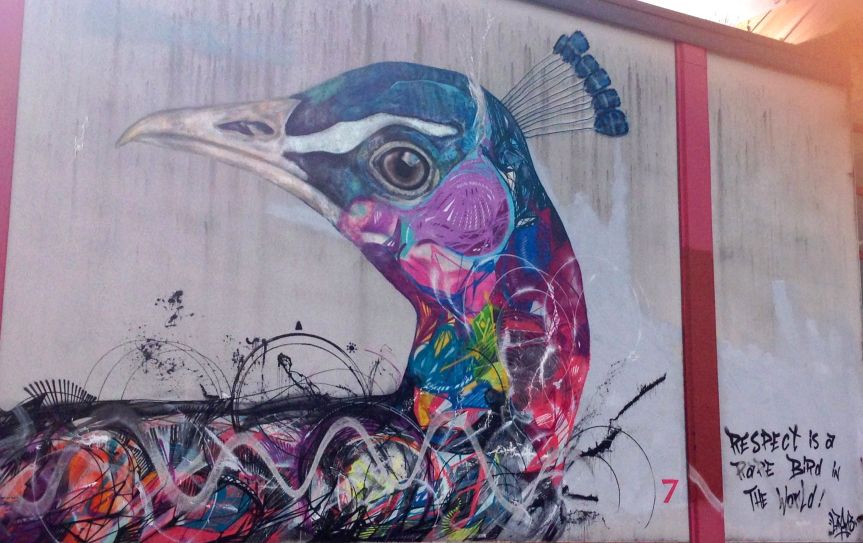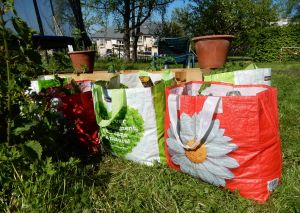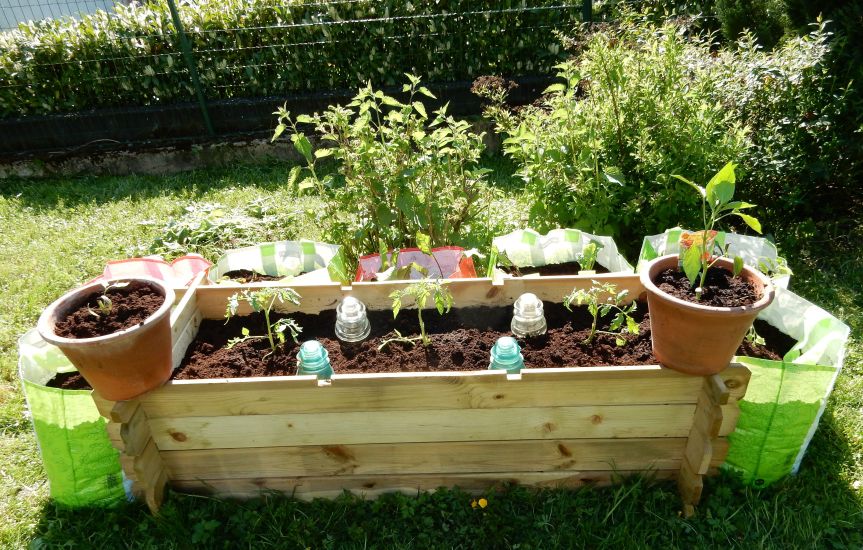
I found a post a couple of weeks ago asking for volunteers to teach English classes to the refugees and asylum seekers at Croix-Rouge Luxembourgeoise (Red Cross). Today I had my first class and it was enlightening and enriching. I have been wanting to help out with the refugees since I arrived in Luxembourg last summer. I was able to donate clothes and toys and also help out at the sorting center, but this was my first opportunity to help face-to-face.
After a few e-mails back and forth with other volunteers I found a time to meet up with Mairead (a kind and gentle Irish woman that has lived in Luxembourg for many years) this morning for my first class. I wasn’t sure what to expect. The only note I received about the classes was that many of the people spoke little to no English and would only be in this transitional camp for a few weeks to months.
Mairead sent me an e-mail telling me how to get to the camp, an old industrial warehouse that many don’t know about, just a 3 minute drive from my house. Drive past the supermarket parking lot and stop at the gate for the guards who will need to see your ID and usher you in. Upon arrival I saw a few men going from building to building and a couple of security guards. It was very laid back. There were beautiful murals on the walls outside and in the building. We met in the parking lot with her husband and she proceeded to show me around and give me the history of the building, the murals and how the Croix-Rouge has been housing the refugees here since November 2015. It was a camp for families and men but is now just a camp/center for men. There are other camps in the area that cater to families.
As we walk into the building there are men milling around, saying “Bonjour” or “Moin” – hello in French and Luxembourgish – with a smile.
Mairead explains how many men are housed here, around 150 now, and how they go about their daily routine, which includes language lessons onsite in English, French and Luxembourgish if they wish. Language is very important since you can’t get a job unless you have one or more of the national languages – French, German or Luxembourgish. English is also very well-spoken in Europe.
At first we only have one student, an 18-year-old boy from Montenegro in the Balkan countries. He has been in Luxembourg for a few weeks and hopes to stay but knows it is unlikely since primarily true asylum seekers (Syria, Libya, Iraq, Afghanistan, etc.) are getting completely through the process. Years ago refugees from the Balkan countries were granted asylum but nowadays not. The boy came here in hopes of finding work. When he returns to Monte Negro, which he is sure will happen, he wants to go to school to become a police officer.
Next a 42-year-old man from Iraq joins us. He knows very little English and only speaks Arabic. After introductions Mairead sets me to teaching him one-on-one as other men start joining the class. He is soft-spoken and earnest and really wants to learn English. He is a welder by trade and we have worksheets that have pictures of tools and workers with the names in English and Arabic underneath. We work on his pronunciation. As the class progresses we start to talk more. He shows me pictures of his wife and children, who currently live in Germany. He has only been in Luxembourg for 4 months but his wife and family were able to leave Iraq six years earlier and start the immigration process in Germany. His family visited him here in Luxembourg last weekend and he shared his pictures of their picnic. I told him how beautiful his family is and he continued to share pictures of them including his daughter’s 11th Birthday party. I could see a sadness in his eyes that he wishes he could be with them now but knows it might still be a while before they are reunited.
Close to the end of the class a few more men show up and work with Mairead. A young man from Afghanistan joins our group. He has been in Luxembourg for just two weeks. He shared with me his route here and what it took to get here – trains and bus rides. At the end of the class I talk with the other men too. Some of them have been here a couple of weeks, some a few months. They are from Monte Negro, Iraq, Libya, Afghanistan and other countries. I didn’t get a chance to talk with all of them and we are using limited English.
There is one thing that did stand out with all of these men. They are happy to be in Luxembourg but sad to have left their countries. They have left behind family and friends and lives that they could no longer live. Some of them were laughing and joking while others were quiet and contemplative. Who really knows what they have been through to get to where they are today. One thing is for sure, they all have kind hearts and want to start a new life in Luxembourg.




